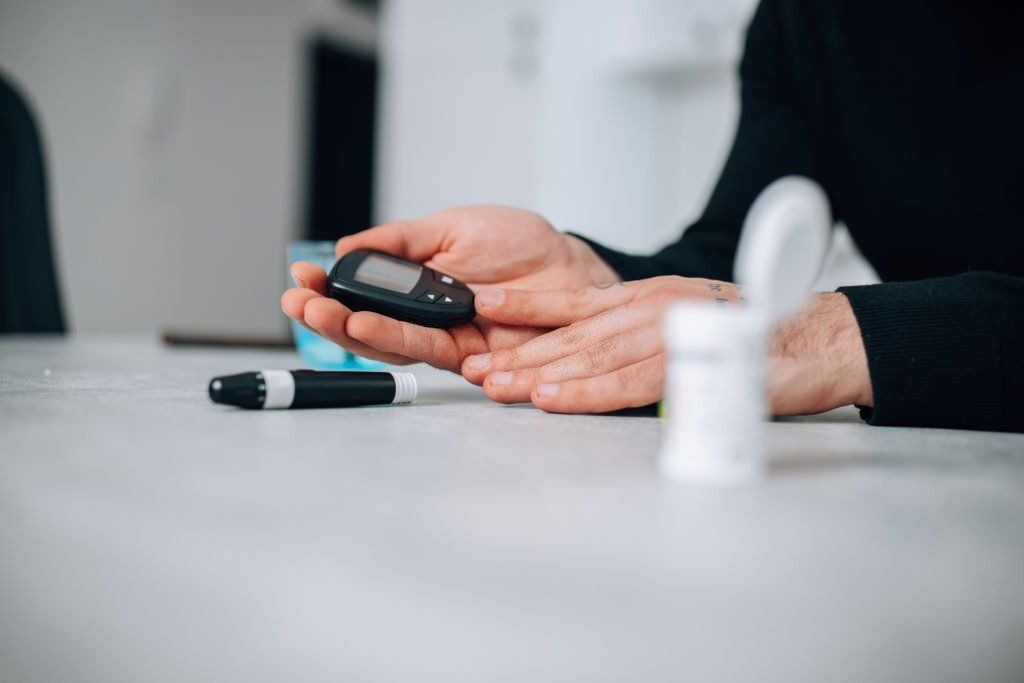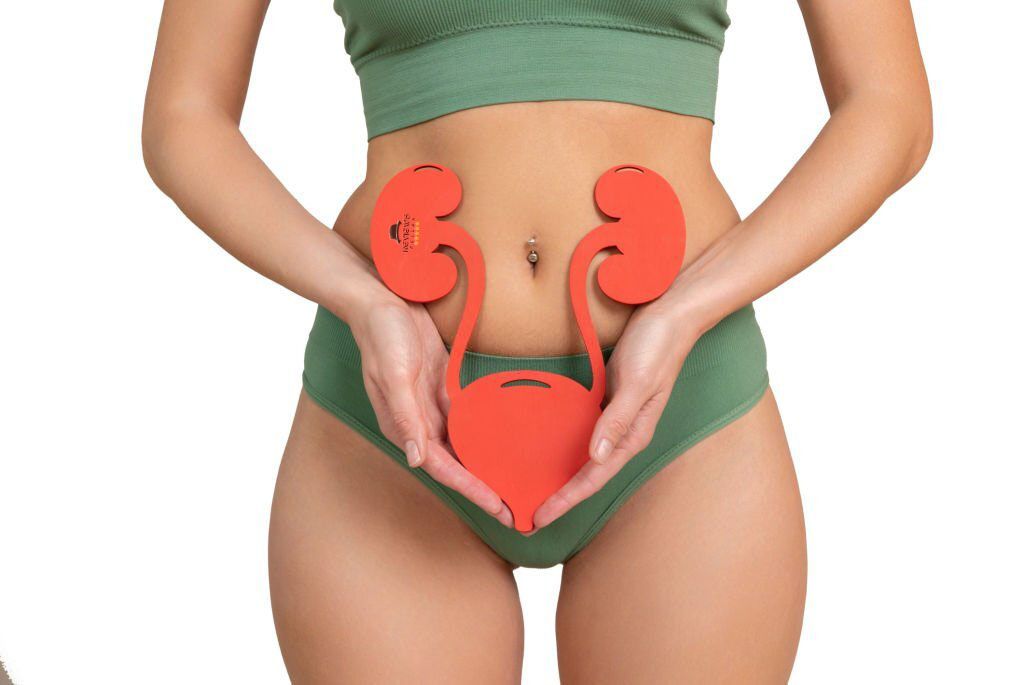This article is reviewed, corrected, and approved by: Dr. Joshua Collins M.D. | MRCP। FRCP
Do you hear about Chronic Kidney Disease (CKD)? It's a condition that can last for a long time and affects the proper functioning of your kidneys. Without proper treatment, it can advance to kidney failure.
The kidney is one of the vital organs of the human body. It is the kidneys' responsibility to filter out waste products from the bloodstream, balance electrolytes, and produce hormones. But with CKD, your kidneys get damaged and can't perform these functions well enough.
What is CKD?
Chronic Kidney Disease is a long-term condition that affects kidney function, leading to serious kidney abnormalities if not treated in time. The kidneys filter waste products, balance electrolytes, and produce hormones, but in CKD, they become damaged and unable to perform these functions efficiently.
Chronic Kidney Disease Causes
Chronic Kidney Disease (CKD) is categorized into five stages, with stage 1 representing the least severe condition and stage 5 denoting complete kidney failure.
Common causes of CKD include:
- Glomerulonephritis
- Diabetes
- Hypertension
- Polycystic kidney disease ICD 10
- Using various medications or narcotics for a long period of time
Symptoms of Chronic Kidney Disease

Fatigue may not be apparent in the early stages of the disease, but it may become evident as the disease progresses. Also, swelling in the legs and ankles, changes in urination patterns, persistent itching, muscle cramps, nausea, and difficulty concentrating are often seen.
In addition to CKD, cardiovascular disease and bone disorders are also associated with it. CKD (Chronic kidney disease ICD 10) may not cause noticeable symptoms in the early stages. With the progression of the disease, the following signs and symptoms may become evident.
Fatigue
Feeling constantly tired, weak, or lacking energy is a common symptom of CKD and renal parenchymal disease. It can be attributed to the buildup of waste products in the body and anemia (low red blood cell count) caused by impaired kidney function.
Swelling
CKD can lead to fluid retention, resulting in swelling (edema) in the legs, ankles, feet, and hands. Puffiness around the eyes and face may also occur.
Changes in Urination
CKD can affect urine output and characteristics. Signs include:
- Increased frequency of urination or urgency.
- Decreased urine output or difficulty urinating.
- Foamy or bubbly urine, indicating proteinuria (excessive protein in the urine).
- Blood in the urine (hematuria) can give it a pink, red, or cola-colored appearance.
Hypertension (High Blood Pressure)
The kidneys assist in maintaining blood pressure levels in the body. If someone has CKD, their blood pressure might get too high and harm their kidneys even more. It can become a cycle that makes kidney function worse.
Changes in Appetite and Weight
Loss of appetite, vomiting, and nausea are often seen who have kidney disease. Weight loss or unintentional weight gain due to fluid retention may also occur.
Sleep Problems
Individuals with CKD may experience difficulty sleeping, restless legs syndrome, or frequent nighttime urination (nocturia), which can disrupt sleep patterns.
Itching and Dry Skin
Kidney dysfunction can cause a buildup of waste products and minerals in the blood, leading to dry and itchy skin.
Muscle Cramps and Twitching
Muscle cramps, twitches, and restless legs may be caused by electrolyte imbalances, such as low calcium and magnesium levels.
Cognitive Difficulties
CKD can affect brain function, leading to difficulty concentrating, memory problems, and a general mental fog.
Shortness of Breath
Anemia resulting from reduced production of red blood cells in the kidneys can cause a shortage of oxygen-carrying capacity, leading to breathlessness, even with minimal physical exertion.
Chronic Kidney Disease Self-Care

Self-care plays a crucial part in managing chronic kidney disease (CKD) and improving overall well-being. Here are some important self-care tips for individuals with CKD:
1. Control your blood pressure
High blood pressure can accelerate the progression of CKD and kidney issues such as renal parenchymal disease. Maintain control of your blood pressure by making lifestyle changes such as reducing your sodium intake, engaging in regular exercise, and adhering to prescribed medications.
2. Control of blood sugar levels is mandatory for diabetes patients
Diabetes is a common cause of CKD. Managing your blood sugar levels carefully is essential if you have diabetes. Follow your diabetes management plan, including monitoring your blood sugar regularly, taking prescribed medications or insulin, and following a balanced diet recommended by your physician.
3. Take your medications as prescribed
Follow your doctor’s instructions regarding medications for CKD, including blood pressure medications, phosphate binders, or medications to manage other health conditions. Adhering to the prescribed medication regimen is crucial for managing CKD effectively.
4. Eat a healthy diet
A kidney-friendly diet, overseen by a registered dietitian, can help manage CKD by regulating protein, sodium, potassium, phosphorus, and fluid intake.
5. Regular exercise
Regular physical activity can bring several benefits to those with CKD. Incorporating a routine workout regimen into your lifestyle can effectively regulate blood pressure levels, sustain a healthy weight, enhance cardiovascular health, and promote overall well-being.
6. Monitor your kidney function
Regular monitoring of kidney function is vital in managing CKD. Regularly attend healthcare appointments and checking, undergo recommended tests, and monitor changes in kidney function to guide treatment decisions and assess disease progression.
7. Stay positive and connected to your healthcare team
Living with CKD can be challenging, both physically and emotionally. Join online support groups and connect with loved ones to tackle challenges with positivity. Stay engaged with your healthcare team, ask questions, and communicate any concerns or changes in your condition.
How is Chronic Kidney Disease Diagnosed?

CKD is usually detected by a doctor who will ask about your health history, examine you, take some blood and urine tests, and perhaps use special pictures of your kidneys to help make a diagnosis. The process for diagnosis consists of the following steps:
Medical History Assessment
The healthcare provider will inquire about your symptoms, medical history, family history of kidney disease (chronic kidney disease ICD 10), and any risk factors such as diabetes or hypertension.
Physical Examination
A doctor or physician may perform a physical examination to look for evidence of renal disease. Such as high blood pressure, swelling (edema), irregular heartbeat, or abnormal heart or lung sounds.
Laboratory Tests
a. Blood Tests: Blood tests are conducted to assess kidney function and measure the levels of waste products, electrolytes, and other substances in the blood. Testing usually involves measuring serum creatinine and blood urea nitrogen, as well as electrolyte levels, glomerular filtration rate, and estimated glomerular filtration rate.
b. Urine Tests: The presence of abnormalities in urine samples can be analyzed to detect conditions such as excess protein (proteinuria) or blood (hematuria), which may be indicative of kidney damage.
Imaging Studies
Kidney Ultrasound
This test uses sound waves to take pictures of the kidneys without needing to go inside the body. It helps doctors see if there are any problems with the way urine flows through the body or if there are any physical issues with the kidneys.
Kidney Biopsy (in some cases)
A kidney biopsy involves the extraction of a small sample of kidney tissue to evaluate the extent of damage and determine the underlying cause of CKD. It is usually performed when the cause of kidney disease is unclear or when specific treatment strategies are needed.
Healthcare experts can diagnose CKD; they can assist in determining the cause and create a personalized treatment plan like a 7-day meal plan for kidney disease. Consistent monitoring and follow-up appointments are necessary to monitor the progression of CKD over time.
Frequently Asked Questions (F.A.Qs)
Q: What is the latest treatment for chronic kidney disease?
Ans: Here are some latest treatments for CKD
- Angiotensin-converting enzyme (ACE) inhibitors
- Protein restriction
- Kidney dialysis
- Kidney transplant
- Angiotensin receptor blockers (ARBs)
Q: What are some fast foods that are okay for kidney disease?
Ans: Fast foods high in sodium, phosphorus, and unhealthy fats should be avoided for kidney disease. It is best to opt for homemade meals with fresh ingredients.
Q: Is kidney disease genetic?
Ans: Some kidney diseases are hereditary, while others may be caused by lifestyle, medical conditions, or environmental factors.
Q: What is Arizona kidney disease and hypertension center?
Ans: In Arizona, the Kidney Disease and Hypertension Center provides specialized healthcare services for individuals suffering from kidney disease and hypertension.
Q: What is icd 10 kidney disease?
Ans: For medical purposes, kidney diseases are given codes in a classification system called ICD-10. This helps doctors keep accurate records, bill properly, and analyze data.
Q: Are PKD and CKD similar?
Ans: PKD (polycystic kidney disease icd 10) and CKD (Chronic Kidney Disease) are related, but they are not the same.
Know The Strategies to Manage Chronic Kidney Disease
Conclusion
Chronic Kidney Disease (CKD) is a serious condition that decreases kidney function and, if left untreated, can lead to major kidney problems and even death. CKD is a kidney function decline with symptoms like fatigue, swelling, and changes in urination.
Diagnosis includes medical history, physical exam, and lab tests. Chronic kidney disease self-care is crucial, like controlling blood pressure and sugar levels, following a kidney-friendly diet, and monitoring function. Consult healthcare professionals.


